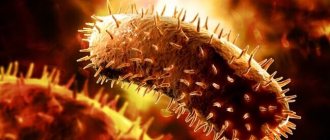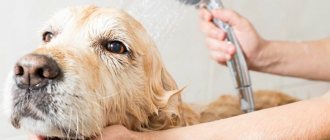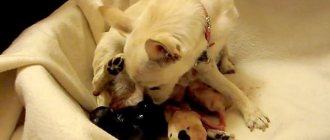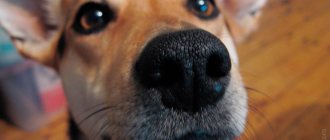A miniature, affectionate and cute Chihuahua is a pampered creature accustomed to comfort and warmth.
The immunity of dogs of this Mexican breed is quite fragile and susceptible to infections.
Will vaccination help? At what age should you get your first vaccinations? What diseases should Chihuahuas be protected from?
Read our article!
Are vaccinations necessary?
“Why does my dog need vaccinations? She almost never leaves the house, and if she does, it’s only in warm clothes!” - this phrase can often be heard from inexperienced breeders.
Despite all the care, and in some cases even overprotection, Chihuahuas cannot do without vaccinations, and here’s why:
- Most canine infections are transmitted by airborne droplets. Even if your pet doesn't leave the house, you can spread the infection on the bottom of your shoes by stepping in the feces of an infected dog;
- some diseases of a lonely person are dangerous for both humans and dogs - the pet can catch the infection from you;
- puppies and older dogs have extremely vulnerable immunity.
NOTE!
Vaccinations are especially important for representatives of the show class, since the presence of stamps in the veterinary passport also affects admission to participation.
Why do dogs need vaccinations?
Due to the characteristics of the Chihuahua breed, they have weak immunity and are susceptible to diseases. Even if a dog does not go outside all its life and relieves itself in a tray, vaccination is a mandatory procedure, since the owner can bring some infections into the apartment with shoes. Vaccinations are an important part of veterinary care for your pet, their functions:
- reduce the risk of contracting deadly diseases;
- reduce the likelihood of fatal complications during the course of the disease;
- provide an opportunity to participate in exhibitions and competitions;
- are a requirement for transportation in public intercity and international transport.
Vaccinations are especially important for Chihuahua puppies and older dogs, as they have weaker immune systems. If your pet gets sick at these stages of life without vaccination, it can be fatal.
At what age should the vaccination be given?
Chihuahuas are handed over to new owners at two months of age. At the same age, puppies receive their first necessary vaccinations.
Some breeders also vaccinate very small, one-month-old puppies. This measure is not mandatory, therefore vaccination earlier than two months is called “zero” vaccination.
In addition, many veterinarians encourage taking your time. The immunity of puppies is very fragile and is not always able to cope with the development of immunity against the vaccine. In veterinary practice, there have been cases where an entire litter of Chihuahua puppies died due to premature vaccination.
Expert opinion
Tolkachev Andrey Mikhailovich
veterinarian
Chihuahuas are often brought to me for appointments that do not have a single vaccination on their veterinary passport. This is a big omission on the part of the owner. A dog of this breed needs not only a balanced diet and vitamins, but also all the necessary vaccinations.
Is it worth getting vaccinated against coronavirus and leptospirosis?
Professional breeders and dog handlers do not recommend injecting the coronavirus vaccine for two specific reasons:
- The vaccine provides limited protection against coronavirus.
- Coronavirus is a relatively mild illness, with many infected dogs showing no symptoms.
It's also worth noting that only puppies under 6 weeks of age show symptoms of coronavirus disease. Therefore, there is no benefit in vaccinating an older individual. Thus, if there is no coronavirus epidemic in your region, then there is no need to vaccinate your Chihuahua puppy against infection.
Owners should think carefully before vaccinating their Chihuahua dog against leptospirosis. Caused by the bacterial pathogen Leptospira, leptospirosis is transmitted to dogs (and people) through direct contact with contaminated urine, feces, water, or soil. Fleas and ticks are also carriers. The infection affects the kidneys, causing kidney failure and inflammation.
Current leptospirosis vaccines do not protect against all of the more than 200 species of the pathogen. For some species, the vaccine has an effectiveness rate of 50 to 75% within one year. Breeds such as Chihuahuas are also at greatest risk of a severe reaction to the leptospirosis vaccine, including anaphylactic shock.
Therefore, in the table above, I did not indicate vaccines such as Nobivac Lepto and Nobivac LR, where L and Lepto stand for leptospirosis. Immunization of Chihuahuas against these diseases is at the discretion of the owner. If you are concerned about leptospirosis and coronavirus, consult your veterinarian to discuss the effectiveness of vaccination and the risks associated with it.
The written arguments are the personal opinion of the administration, a recommendation, and not a call to refuse vaccinations for these diseases!
From what infections?
Chihuahua babies must be vaccinated against the following diseases:
- parainfluenza;
- viral enteritis;
- rabies;
- carnivore plague;
- infectious hepatitis;
- leptospirosis;
- adenovirus infection.
IMPORTANT!
Before purchasing a puppy, be sure to read its veterinary passport and consult with the breeder regarding the vaccination schedule.
Vaccination schedule
This table shows the vaccination schedule by age for Chihuahua puppies:
| Dog age | Name of vaccination |
| 2 months | DHPPI+Lepto or Nobivak Lepto |
| 3 months | Repeat the first vaccination |
| 4 months | Repeat the first and second vaccinations |
| 1 year | The drug Eurican LR. Rabies vaccination |
All vaccinations required for Chihuahuas are aimed at combating viral infections.
The drug, its quantity and schedule can be adjusted directly to the dog, depending on its state of health and immunity. However, most often veterinarians recommend sticking to the schedule presented above.
First
From parvovirus enteritis, leptospirosis, adenovirus infection and canine distemper. A week and a half before vaccination, puppies are given an anti-worm suspension.
Second
This action allows you to develop immunity in the puppy’s body and consolidate the achieved result. Again, 10 days before vaccination it is necessary to carry out deworming.
Third
It is carried out with the same drugs as the previous one, at 4–8 months, after the complete replacement of milk teeth with molars.
NOTE!
Chihuahuas need an annual booster vaccination at the same time.
Rabies vaccination
As a result of medical tests, it was proven that this vaccine is most difficult for Chihuahua puppies to tolerate. It is after this that various kinds of complications most often arise. For this reason, it is carried out after the first year of the dog’s life, when the body is sufficiently strong and all other vaccinations have already been completed.
The rabies vaccine maintains the dog’s immunity for three years, so revaccination more than once every 3 years does not make sense.
Due to the fact that Chihuahuas are quite small and fragile, it is not recommended to vaccinate yourself - there is a high risk of damaging muscles or blood vessels. It is better if the vaccination is done by a specialist from a veterinary clinic.
If you are planning to show your dog at an exhibition, make sure that the veterinarian is in charge in advance. The passport had all the necessary stamps. They will also come in handy when moving and flying.
Which vaccinations can you refuse and which ones must be done?
Most professional dog trainers and breeders agree that it is undesirable to vaccinate your pet against a disease such as coronavirus infection for the following reasons:
limited protection;- absence of characteristic signs, since the pathology refers to mild diseases.
Symptoms of coronavirus appear only in puppies under six months of age, and after vaccination in the later period, the benefit of the drug will not be noticeable.
In the absence of an epidemic in the region where the dog lives, there are no obvious reasons for administering the vaccine.
No less important is the issue of vaccination against leptospirosis. Pathology is transmitted through contact with infected excrement, urine, soil or water. Ticks and fleas also act as carriers.
Modern drugs are not able to protect an animal from more than 200 types of pathogenic pathogens. In addition, Chihuahuas are more susceptible to developing complications after vaccination.
For such breeds, vaccination against rabies and other types of diseases is mandatory.
What should you do after vaccination?
Stock up on diapers and litter for the litter box in advance, because after vaccinations your pet will not be allowed to go outside for two weeks. This measure is necessary in order to consolidate the effect of the vaccine and reduce the risk of a sharp decrease in immunity after experiencing stress.
Make sure your dog always has a clean diaper - this will save him from unnecessary stress, and you from having to clean up your pet’s puddles.
The dog will “come to its senses” for some time after a visit to the veterinary clinic. Make sure that other pets or children do not disturb the animal.
It is important that during this period the Chihuahua has a place where he can hide from noise and lie quietly. This could be a house or a bed, located away from drafts and heating appliances.
IMPORTANT!
Do not allow your dog to lick or scratch the injection site - this may cause an inflammatory process on the skin.
Quarantine period
After vaccination, a quarantine period begins, which lasts 10–14 days. At this time, it is necessary to carefully monitor the condition and well-being of the dog. Be especially vigilant with Chihuahua puppies after their first vaccination.
Recommendations to follow during the quarantine period:
- exclude contact with other animals;
- cancel outdoor walks;
- do not bathe the animal;
- Do not let the area where there is an injection mark be scratched.
Possible consequences
Often after the injection, the dog’s well-being changes:
- body temperature rises – the llama’s pads and nose become warm;
- a small subcutaneous lump appears at the injection site;
- the dog becomes lethargic and sleepy, refuses favorite games and toys;
- the pet loses its appetite and shows no interest even in treats;
- Puppies may have drooping ears.
This condition, as a rule, does not require correction. The dog's body develops immunity to the pathogen. Within 2-3 days the pet’s health should return to normal.
If there is no improvement and your four-legged friend’s condition only worsens, call a veterinarian immediately. Most often, this happens when the vaccine is given to an already sick animal. Since the vaccine begins to act only 10 days from the moment of administration, all this time the dog’s immunity is forced to fight with a double load.
If the dog becomes significantly worse after vaccination, Gixan serum will help it.
What to do if you missed a vaccination?
In the hustle and bustle of everyday life, it is very easy to forget about the need to vaccinate your pet on time. Sometimes owners remember this much later than expected and do not know what to do next.
Regardless of the situation, there is no need to panic. Consultation with a specialist is important here. After calculating how many days have passed since the last vaccination, he will make a decision.
NOTE!
If your pet is less than two weeks behind schedule, then one vaccination will be enough. If we are talking about more impressive periods, then the Chihuahua will have to go through the vaccine and revaccination with a break of a month, as it was in puppyhood.
approximate cost
Some owners who know how to administer vaccinations save on a visit to the veterinary clinic and administer the injections themselves, using a small syringe and drugs purchased in advance at a veterinary pharmacy.
This should only be done if you are absolutely confident in your own abilities and that it will not harm the dog in any way. In other cases, it is better to contact a qualified specialist.
The final price for the vaccination procedure is determined depending on:
- vaccine manufacturer companies;
- pricing policy of the veterinary clinic;
- region of the country;
- reputation of the veterinary clinic and its status (private or public).
On average, each vaccination for a Chihuahua costs from 150 to 300 rubles.
The body's reaction to vaccination
Vaccines are effective in preventing and preventing infectious (and viral) diseases, but have side effects. Most of them are weak, appear a few hours after vaccination, and disappear within 1-2 days. If any of the side effects listed below persist for more than 2 days, contact your veterinarian.
Relatively safe post-vaccination side effects:
- redness and slight swelling at the injection site;
- slight increase in temperature (+0.2-0.9 °C);
- loss of appetite;
- drowsiness and decreased activity;
- runny nose and sneezing;
- local pain in the injection area.
Mild side effects in the form of an allergic reaction can be alleviated by using antihistamines: Diphenhydramine, Suprastin or Benadryl. The dosage varies depending on the weight of the animal. The calculation is carried out in a 2:1 ratio, i.e. 2 mg per 1 kg of body weight.
Dangerous post-vaccination side effects also occur, which require emergency veterinary care.
Dangerous post-vaccination side effects:
- anaphylactic shock;
- severe periodic vomiting and diarrhea;
- cyanosis of the mucous membranes of the mouth and tongue;
- labored breathing;
- urticaria (allergic rash);
- severe itching;
- swelling of the face and neck (Quincke's edema).











